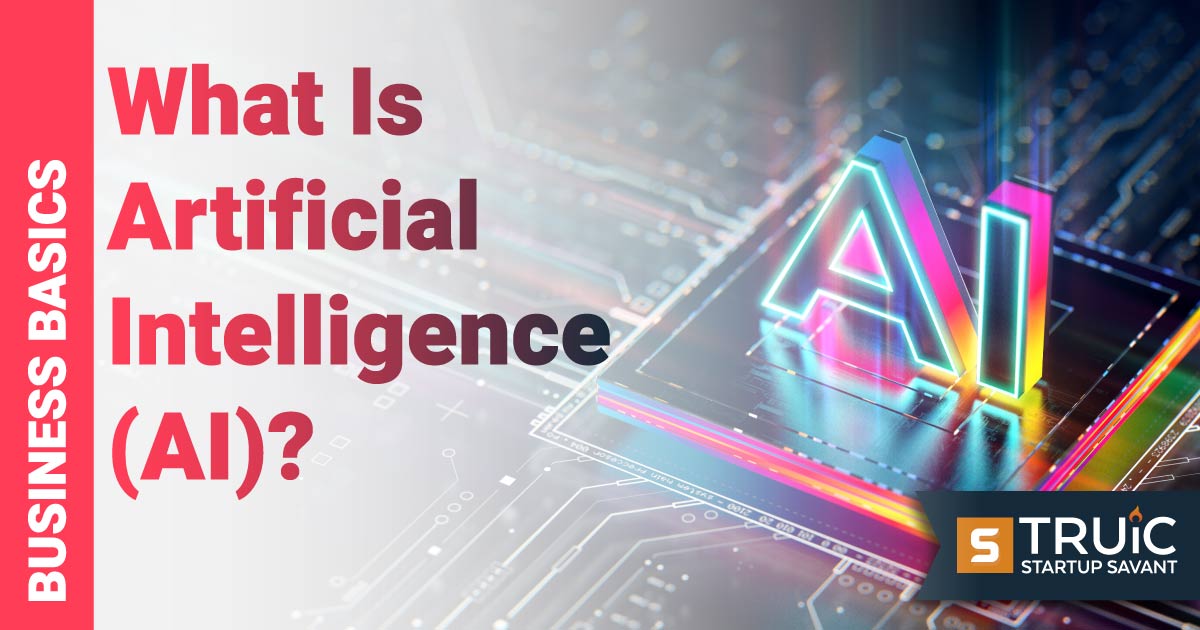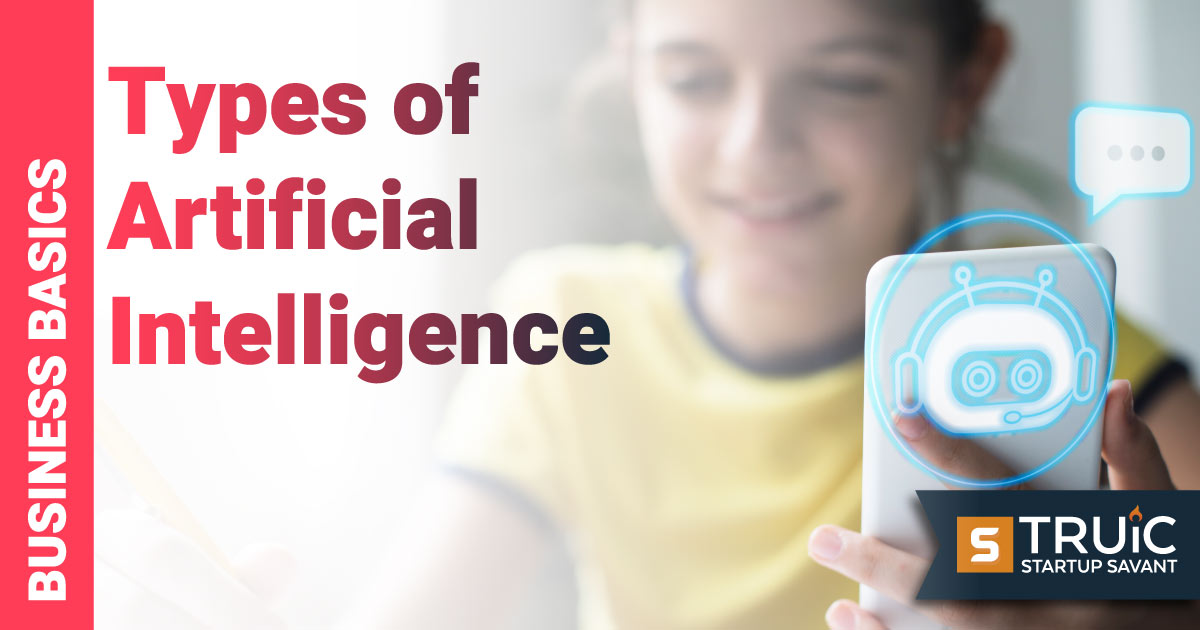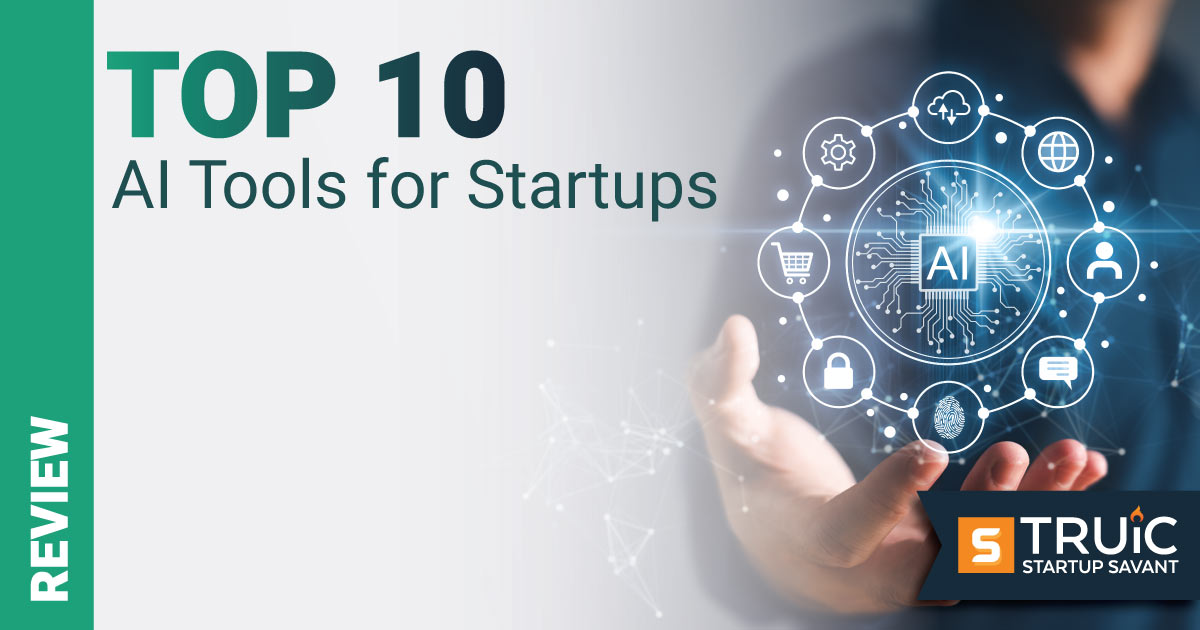What Is Artificial Intelligence (AI)?

Last Updated: By Michaela Dale
Artificial intelligence (AI) is a powerful technological advancement that impacts our daily lives — even without our knowledge. While artificial intelligence has been around for decades, its capabilities have accelerated exponentially in recent years. This explosive growth has led to a litany of impressive, fast-scaling AI startups developing innovative use cases by leveraging the power of artificial intelligence.
For startup founders, AI can be an undeniably valuable asset for streamlining workflows and helping to scale your business. In this guide, we break down what AI is, the ethical considerations of using AI, and how startups can leverage it.
Artificial Intelligence Definition
Artificial intelligence, or AI, refers to computer systems that can perform tasks that typically require human intelligence. The goal of AI is to create intelligent machines that can think and act like humans.
For example, AI systems can recognize images, understand speech, translate between languages, play games, and drive cars. AI can automate or augment human capabilities.
AI uses algorithms and data to "learn" how to perform these tasks rather than having every step directly programmed by people. By analyzing large amounts of data, AI can find patterns and make decisions or predictions.
What Is Deep Learning?
Deep learning is a type of artificial intelligence that mimics how the human brain works. In our brains, we have billions of connected cells called neurons that help us interpret the world around us. Deep learning uses artificial neural networks, which are layers of simple computing units that are densely interconnected, just like neurons in the brain.
These artificial neural networks are structured in layers. The first layer detects basic patterns in input data, like colors, edges, shapes, or tones. Then, each successive layer uses those patterns to identify more complex features, like facial features, objects, or words.
With enough layered neurons, deep learning models can learn to recognize very elaborate concepts and perform tasks like identifying diseases, translating languages, or driving cars. To train these models, we provide them with huge labeled datasets like images, text, or audio recordings. The models repeatedly analyze these examples, slowly improving their abilities.
What Is Machine Learning?
Machine learning allows computer systems to learn and improve without being directly programmed. Unlike traditional computer code with fixed instructions, machine learning algorithms actually reprogram themselves as they are exposed to more data. This enables them to keep getting better at tasks without human intervention.
The process of learning from examples is central to all machine learning. Whether it's learning to translate text between languages, identify spam emails, or drive a car, machine learning algorithms train on massive datasets to find patterns and create models.
These models can then be used to make predictions or decisions automatically when presented with new data. The models continually improve by testing their predictions against real outcomes and correcting themselves.
What Is Generative AI?
Generative AI is a type of artificial intelligence focused on creating new content like images, text, or audio. The key idea is that instead of simply analyzing data, generative AI systems can generate brand-new examples that resemble real content.
To enable this, generative models like GANs and ChatGPT are trained on massive datasets until they learn the patterns and structures of things like languages, sounds, and visuals. After training, the models can produce innovative, realistic outputs based on the patterns they recognize. This allows for new images, videos, articles, and even conversations to be synthesized from scratch.
Pros and Cons of AI in Business
Artificial intelligence has both advantages and disadvantages when it comes to using it in your business. Here are a few important pros and cons of AI to consider:
Pros
- Streamlines processes: With some AI use cases, tasks and workflows can be easily streamlined, saving you and your staff valuable time and energy to focus on growing your business.
- It can be cost-effective: Tools like ChatGPT and DALL-E 2 offer free versions to help you accomplish tasks without breaking the bank.
- Provides more insights: AI can be extremely useful in aggregating data, making it easier and faster to make business decisions rooted in data.
Cons
- It can be unreliable: Generative AI is known for what is called “hallucination,” which entails the technology generating false information.
- AI doesn’t replace human reasoning: While AI can match or exceed human intelligence in some domains, it can’t rival human reasoning or common sense.
Ethical Considerations of AI in Business
Whether you’re starting an AI startup or using an AI tool, there are ethical considerations to be made.
One of the most common concerns about this impactful technology is AI replacing human intelligence and ingenuity. With AI being used more frequently as its capabilities increase, it is common to use artificial intelligence as a tool in tandem with human intelligence rather than using it as a replacement.
This can be essentially crucial when it comes to making staffing decisions for your startup. While artificial intelligence can be a valuable asset, it is generally regarded as a tool rather than a replacement for value-creating staff members.
Furthermore, while AI can masterfully accomplish many narrow-focused tasks, these models still lack robust common sense and reasoning compared to humans.
How to Use AI for Your Startup
Looking for ways to fold AI into your startup’s processes? Look no further – here are some examples of ways startups can use AI, including popular AI tools for startups.
Content Creation
Whether you’re looking to generate text, images, or high volumes of content — there is an AI tool to help. While most tools still require you to edit and fact-check results, you can easily test ideas and get creative to develop impactful content.
Here are a few examples of the top AI content-creation tools for startups:
Research and Data Aggregation
As mentioned above, AI can be a fantastic tool for research and data compilation and analysis. Rather than spending valuable time compiling data for your startup, you can leverage AI tools to manage data seamlessly.
Here are a few examples of AI-powered data management tools for startups:
Project Management
Project management tools can help expedite processes and get results faster. When combined with AI, these tools can help your team streamline workflows and keep projects organized.
Here are a few examples of AI project management tools for startups:
Productivity and Time Management
AI can be highly effective for improving productivity and managing your time. With so many tasks and limited time, AI tools can help prioritize what's most important and schedule your day efficiently.
Branding and Marketing
AI can also help with branding and marketing efforts, whether it be developing branding materials such as logos or automating social media content. Using artificial intelligence can help you not only experiment with developing different branding options for your startup but also save you time and money on marketing once your brand is established.
Here are a few examples of AI branding and marketing tools for startups:


